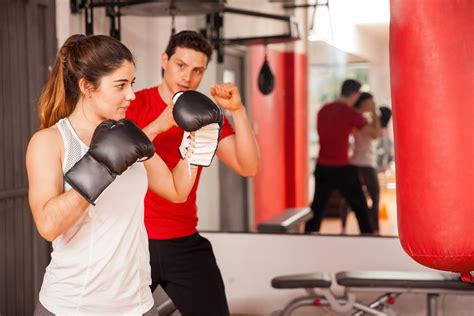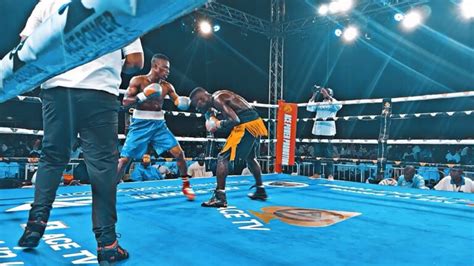Explore the essential role of coaches in boxing, from skill development to confidence building and career progression for boxers. Discover their impact today!In the dynamic world of boxing, the relationship between a boxer and their coach is pivotal to success. Coaches are not only mentors but also vital architects of a boxer’s career development. They provide the technical guidance necessary for skill enhancement, instill confidence, and foster an environment of continuous improvement. As boxers navigate the challenges of competition, their coaches play a crucial role in shaping their mental fortitude and performance. This article delves into the multifaceted role of coaches in a boxer’s journey—from nurturing skill sets to influencing career trajectories. Join us as we explore how effective coaching can elevate performance and transform potential into achievement in the ring.
Understanding The Role Of Coaches In Boxing
The role of coaches in boxing is multifaceted and essential for the success of a boxer. Coaches serve as mentors, skill developers, and strategists, playing a pivotal part in a boxer’s journey. One of the most significant aspects of this relationship is the role coaches play in shaping both the physical and mental aspects of the sport.
Coaches are responsible for designing training regimens that not only enhance a boxer’s physical skills but also focus on tactical and psychological readiness. This includes honing techniques such as footwork, punching accuracy, and defensive strategies. Moreover, a good coach tailors training specifically to the individual needs and strengths of each boxer, ensuring personalized development.
In addition to physical training, coaches are also vital for motivating boxers, especially during challenging periods. They build resilience, teaching athletes how to cope with setbacks and maintain focus. This psychological support helps boxers to cultivate confidence, enabling them to approach both training and matches with the right mindset.
Furthermore, the role of coaches extends beyond the gym. They often play a key part in guiding boxers through their career choices, offering advice on fight promotions, engagement with sponsors, and managing public relations. This holistic approach to a boxer’s development can significantly enhance their chances for success, both in and out of the ring.
Understanding the intricate role of coaches in boxing reveals the depth of their influence on a boxer’s career. Their expertise, guidance, and support are crucial in navigating the various challenges and milestones one encounters in the boxing world.
How Coaches Contribute To Skill Development In Boxers
Coaches play a crucial role in the skill development of boxers, acting as mentors and trainers who guide them through various techniques and strategies essential for success in the ring. One of the primary responsibilities of coaches is to identify the individual strengths and weaknesses of each boxer, enabling them to tailor training sessions that focus on improving specific skills.
Additionally, coaches provide technical instructions on various aspects of boxing, such as footwork, punching technique, defensive maneuvers, and overall ringcraft. By breaking down complex movements into manageable drills, coaches help athletes master the fundamentals and gradually progress to more advanced techniques.
Another significant aspect of the role of coaches in skill development is the emphasis on sparring and practical application. Coaches set up sparring sessions that simulate real fight conditions, allowing boxers to apply what they have learned in a controlled environment. This not only accelerates skill acquisition but also builds resilience and adaptability, which are critical in competitive settings.
Moreover, consistent feedback from coaches is invaluable for boxers. Constructive criticism helps athletes understand areas for improvement and reinforces positive behaviors. Coaches often utilize video analysis to provide visual feedback, allowing boxers to see their movements and identify adjustments that need to be made. This dual approach of verbal and visual feedback maximizes learning and retention.
The mentorship aspect cannot be overlooked. Coaches cultivate a positive training atmosphere, fostering a relationship built on trust and respect. This not only motivates boxers to push their limits but also instills discipline, work ethic, and a growth mindset necessary for skill enhancement. In summary, coaches are integral in facilitating the technical, practical, and psychological development of boxers, underscoring the role they play in shaping successful athletes.
The Role Of Coaches In Building A Boxer’s Confidence
In the highly competitive world of boxing, the mental aspect is just as crucial as physical prowess. One of the significant responsibilities of a coach is to instill confidence in their boxers. A coach plays a pivotal role in shaping a boxer’s mindset, helping them to believe in their abilities and tackle challenges head-on.
Coaches often use various strategies to build a boxer’s confidence. This can include setting realistic goals, providing constructive feedback, and celebrating small victories along the way. By fostering a positive training environment, coaches can make their athletes feel valued and understood, which is essential for boosting self-esteem.
Moreover, the relationship between a coach and a boxer is vital. A coach’s unwavering support can reassure boxers during tough training sessions or when they face setbacks. This emotional backing helps athletes understand that failures are part of the training process and not a reflection of their worth as a boxer.
Additionally, by utilizing visualization techniques and mental preparation strategies, coaches can help athletes mentally rehearse scenarios they may encounter in the ring. This preparation can significantly enhance a boxer’s self-confidence, allowing them to perform at their best when it matters most.
The role of coaches extends beyond technical training. They are instrumental in building a boxer’s confidence, which ultimately contributes to their overall performance and success in the boxing arena.
Assessing The Impact Of Coaches On A Boxer’s Performance
Coaches play an essential role in shaping a boxer’s performance through various aspects of training and mentorship. The effectiveness of a coach can significantly influence a boxer’s success in the ring. Here are some key areas where coaches have a direct impact on performance:
| Impact Areas | Description |
|---|---|
| Technical Skill Development | Coaches provide tailored techniques and strategies that enhance a boxer’s skillset, improving their boxing style and effectiveness in matches. |
| Physical Conditioning | Coaches implement strength and conditioning programs, ensuring boxers are physically prepared to tackle the demands of competitive bouts. |
| Game Strategy | During training and fights, coaches develop game plans based on the boxer’s strengths and the opponent’s weaknesses, which can lead to better fight outcomes. |
| Emotional Support | Coaches offer psychological support and motivation, fostering resilience and helping boxers cope with the pressures of competing. |
| Performance Analysis | Post-fight and post-training analysis from coaches can identify areas needing improvement, facilitating continuous development. |
In assessing the role of coaches on performance, it’s clear that their contributions go beyond just technical training. They are instrumental in preparing a boxer holistically, combining strategy, technique, and mental fortitude to enhance performance in the ring.
The Key Role Of Coaches In Career Progression For Boxers
In the competitive world of boxing, understanding the role that coaches play in a boxer’s career progression is vital. Coaches are not only trainers; they are strategic partners who help boxers navigate through their professional journeys.
One of the primary ways coaches influence a boxer’s career is through their extensive network. Coaches often have connections within the boxing industry, including promoters, sponsors, and other fighters. This network can be instrumental in securing fight opportunities, sponsorship deals, and potential pathways to championship titles. By leveraging these connections, coaches can significantly enhance a boxer’s visibility and career trajectory.
Furthermore, coaches are responsible for planning and executing a boxer’s training regimen, which encompasses not only physical training but also tactical preparation for different opponents. This tailored approach can be the difference between a boxer who thrives in the ring and one who struggles. Coaches analyze the strengths and weaknesses of their fighters, helping them to develop unique strategies that align with their career goals.
The emotional and psychological support provided by coaches also cannot be overlooked. The journey of a boxer is often fraught with challenges, from injuries to losses. A coach’s ability to motivate, inspire, and instill resilience plays a crucial role in helping boxers maintain their focus and determination, which is essential for long-term success.
In addition to performance and psychological support, coaches often assist with the logistical aspects of a boxer’s career. This includes managing fight schedules, negotiating contracts, and ensuring that all necessary preparations are taken care of ahead of time. By handling these technicalities, coaches allow boxers to concentrate entirely on their training and performance.
The support provided by coaches significantly influences a boxer’s career progression. From strategic planning to emotional backing, their contributions are fundamental in shaping the futures of boxers, helping them to ascend the ranks within the boxing world and achieve their ultimate goals.
Frequently Asked Questions
What is the primary role of a coach in a boxer’s career?
The primary role of a coach in a boxer’s career is to provide training, guidance, and strategy development to enhance the boxer’s skills and performance in the ring.
How do coaches influence a boxer’s mental preparation?
Coaches play a crucial role in a boxer’s mental preparation by instilling confidence, developing mental resilience, and helping athletes cope with the pressures of competition.
What specific skills do coaches teach to boxers?
Coaches teach various skills including technique, footwork, punching combinations, defensive strategies, and how to maintain stamina and conditioning.
How important is communication between a coach and a boxer?
Communication is vital; effective communication ensures that both parties understand training goals, strategies, and feedback, which enhances the boxer’s overall development.
What role does a coach play during a boxing match?
During a boxing match, a coach provides real-time advice, motivates the boxer, and adjusts tactics based on the opponent’s performance to maximize the chances of winning.
How can a coach impact a boxer’s career trajectory?
A coach can significantly impact a boxer’s career trajectory through effective training techniques, creating opportunities for fights, and guiding the boxer in making strategic career decisions.
What should a boxer look for when choosing a coach?
A boxer should look for a coach with a proven track record, experience in the sport, good communication skills, and a coaching style that aligns with their personal goals and needs.









